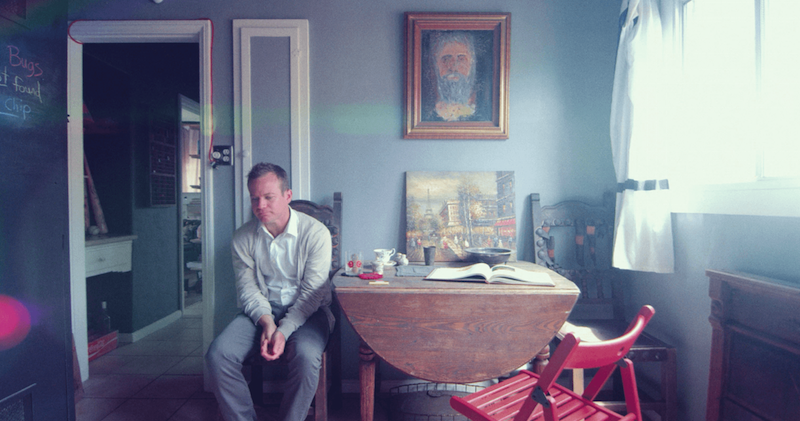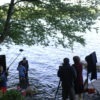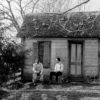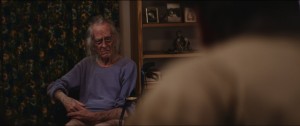
Drama | Filmmaking | Interviews | Rhode Island
Branching Out: From Documentary to Narrative
Filmmaker Eric Latek shifts into narrative storytelling with his two latest short films, both screening at the Rhode Island International Film Festival this month.
Written by Evan Crean | Posted by: NewEnglandFilm.com
Eric Latek talks to NewEnglandFilm.com about the differences between documentary and narrative filmmaking techniques, and why he likes to help other filmmakers.
Eric Latek has directed a couple of documentaries, but he doesn’t want to be labeled as just a documentary filmmaker – so he challenged himself to make two narrative shorts to demonstrate his range and to experiment with new storytelling techniques.
He is debuting his shorts Branch and The Shivoring in his home state of Rhode Island at the Flickers’ Rhode Island International Film Festival (RIFF), which runs from August 9-14, 2016.
NewEnglandFilm.com talked with Latek recently about his storytelling influences with these shorts, the differences between documentary and narrative filmmaking techniques, and why he likes to help other filmmakers.
Evan Crean: This isn’t your first time at the Flickers’ Rhode Island International Film Festival. You were there a few years ago for a documentary called Anna that you made about your godmother.
Eric Latek: Correct. It was a 16-minute short doc and it was more of a personal, poetic-style film. She was in her last stages of Alzheimer’s and I spent time with her periodically throughout the year just sitting with her, spending time with her and the camera, telling the story through her eyes.
EC: How does it feel to be back at the festival again?
Latek: Oh it feels great. It’s nice because I’ve been doing a doc for like 15 years called Tiger. Then, when I did with Anna, I started to get labeled as a ‘documentary filmmaker.’ I could see why I got that label, but I’ve really wanted to showcase my other talents by working on some narrative shorts before I tackle features. I worked in the commercial industry for so long, doing a lot of national commercial spots.
After a while, I just wanted to get back to the goals I had set originally when I graduated from Emerson College, which were to write and produce on the feature film level. So these new shorts were a warm-up to start practicing some things aesthetically as a director, as a writer, as a storyteller. Just show that I can do different things.
EC: That makes sense. You have two shorts that are playing, Branch and The Shivoring. How would you describe them?
Latek: The Shivoring is about a retired cop, who after about 50-plus years goes back to avenge a family member who abused him as a child.
Branch is more sci-fi, but it plays with different psychological layers. It’s about one man who secludes himself from the rest of the world. He gets approached by this voice outside his apartment door that is trying to lure him out and tell him that everything around him is not real. So you don’t know if he’s having a sort of mental breakdown or if his mind is opening up to something bigger. It allowed me a chance to just play with techniques on both films, where I could pace the story and shoot certain scenes in a way that I feel has not been used for a long time in cinema. These days I feel that things are put together at such a frantic pace most of the time. In my opinion Hollywood tells too much, instead of letting viewers think for themselves, and maybe put some imagination into a scene where they’re not given everything. I want to make them curious, you know?
With The Shivoring I was going for more old school type of feel, where it was more set up like a Western. The writing is much more silent. Some of my favorite directors, one in particular is Jean Pierre Melville, the French director who did films like Le Samurai. His films were very silent, where the action of the character drove a lot of the scenes. A lot of times there wasn’t dialogue, so you just watched a character’s actions. I really wanted to go back to that technique and make the audience ask questions. So I wanted to slow the pace and kind of go back to some old school techniques that I’ve always been a fan of in other movies. Really build on silence more than anything.
Latek: Yeah, I think there are a lot of movies now that don’t put enough trust in the audience to kind of figure things out for themselves.
EL: Yeah, exactly. I’m just not a fan of having everything hand-fed to me. I like leaving a film and still asking questions. That’s what I was trying to play with in both films. Branch is much more layered in subtext. A little bit of visual effects, a lot of sound design by Mauro Colangelo, who I have worked with for years. A big part of that aesthetic is the visuals and how things are paced, but the sound design is essential. I wanted the sound to be another character. At times it had to really drive moments instead of the visual effects. So Mauro Colangelo spent a lot of time and used a lot of different techniques to be that other half in the film.
EC: Since you’ve done cinematography for your films, do you feel like there’s a difference between the way you treat documentary and narrative cinematography?
Latek: With Tiger and Anna, I tried to really blend the two. I tried to use the same kind of camera lenses that I would shooting fiction. There is a big difference in that when you have control of the scene, you plan everything out. You know how you need to light it, how everything’s got to be set up. With documentary, I try to go in with some aspect of what I’m looking for. However I kind of have to be on point to get what I get. Sometimes I don’t get it. It’s part of the game. With scripts, it’s easier. Filming stuff like Tiger has made me more efficient though. When I did these shorts, it allowed me to be more efficient. A lot faster.
EC: I’m sure it keeps you on your toes.
Latek: It totally keeps me free. For instance with The Shivoring, there were many points where we wanted to do some improv. So we had the script, but if they went off the dialogue, it was fine. I wanted it to come off natural. I feel like I have a good sense when I’m directing actors of how a performance needs to feel natural.
The documentary world has kind of given me that mindset, to not be locked down on a piece of paper. Watching real situations, I think has given me a sense of how real people react. You’re almost people watching for so long in the real world, it’s a good exercise when you have performers. With a performer, he or she may say something or react to something in a way that seems like overkill. I think it takes a person that has also dealt with the real world to say that doesn’t feel legit. So documentary experience that has helped me with narrative.
EC: I saw on your website that there is a lot of instructional material for other filmmakers. Could tell me more about that?
Latek: I’ve done After Effects since like ’98, maybe? Doing motion graphics is part of what I do on a day to day basis. I’ve done a lot for television networks whether it’s splashes, spots, or whatever. Some of the time I created After Effects templates that were sold online. But at the same time, I’ve created so many things that are sitting in my library. I like to try and give at least through my website so folks can download them for their needs. The tutorials are based on a lot of the visual effects I do with After Effects. So I like to give a little bit of education on how to use things, how to do certain effects. It’s just about giving back for me.
EC: Did you ever have people contact you to say they used something of yours?
Latek: Yeah, all the time. I get that like daily, but the cool thing is I know the [Cleveland] Cavaliers and the Los Angeles Lakers have used some of my After Effects stuff. I remember last year I was in Times Square and I just happened to see one of my After Effects templates being used for FX, the channel. It’s cool. Probably every day I get at least one person sending me a link. A lot of the times it’s independent people, indie folks, which is great because that’s what I relate to.
Other times it’s cool when you see some big massive projects using it on a national or worldwide level. I always say ‘Once a student, always a student.’ Everyday I’m learning something. But I apply these tools – After Effects, and 3D, and editing – to the stories I’m telling. A lot of times I’m a one man band, as I was for these shorts. These shorts were for me to be free to do what I want and tell my stories.
Eric Latek’s shorts Branch and The Shivoring will screen at the Flickers’ Rhode Island International Film Festival (RIFF), which runs from August 9-14, 2016. To learn more about the festival and when the short will be playing, visit www.film-festival.org.
Evan Crean is a film critic in Boston and a founding member of the Boston Online Film Critics Association (BOFCA). He co-hosts the weekly movie podcast Spoilerpiece Theatre and is also the marketing director for Boston Reel, a site dedicated to Boston’s independent film culture. You can learn more about his work at www.reelrecon.com.












